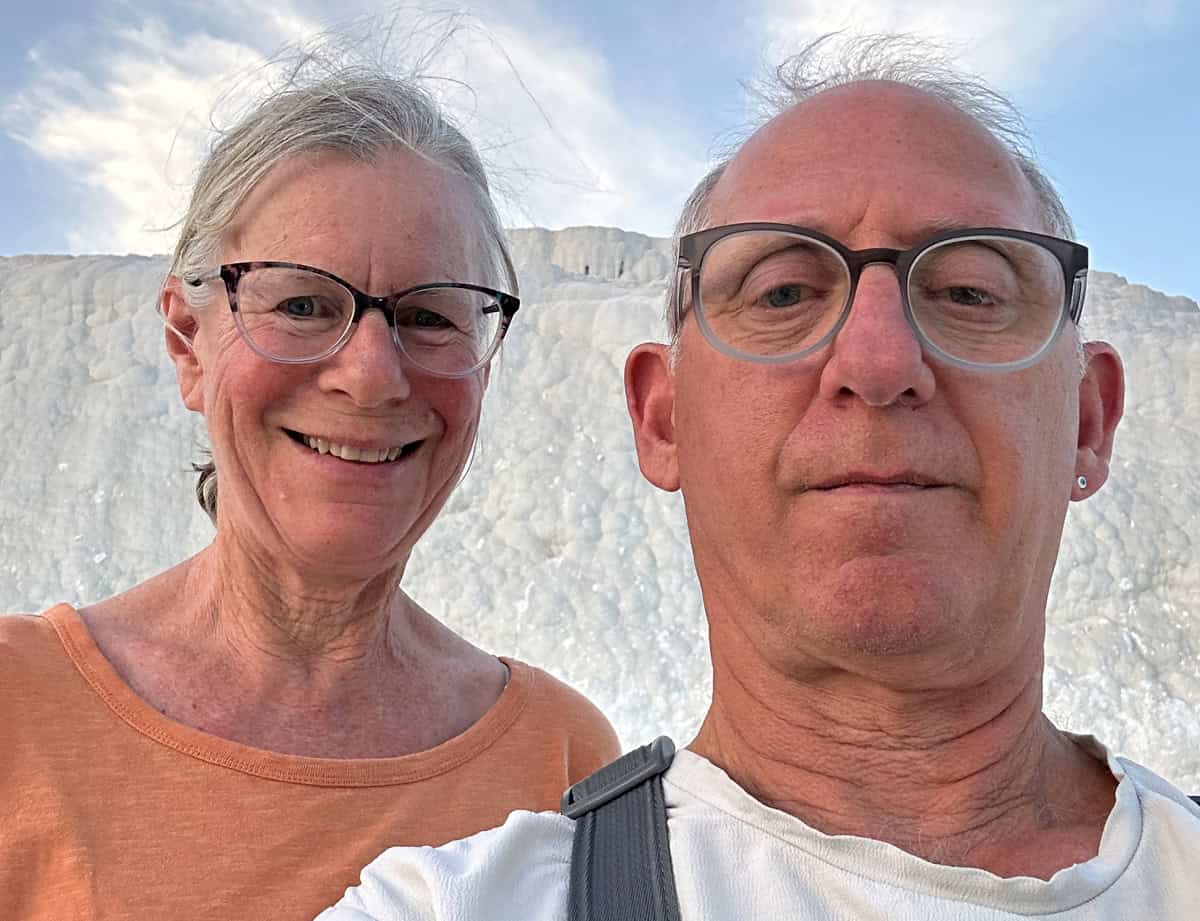 The Adventures of a Nomadic couple in their 60’s.
The Adventures of a Nomadic couple in their 60’s.
I love this interview. Mark and Dorothy travel much the same way we did when we travelled full-time: they travel slow, staying somewhere 2-3 months and really getting to know a place. And they’re not shy, they’ve been to some exotic places that are definitely off the beaten path.
What separates them from most nomadic couples is that they are both in their late 60’s.
In this interview, Mark tells us all about what set them on their path to a life of full-time travel.
******************************
Hi Mark! You and your wife Dorothy travel much the same way we used to. Before we get into that, can you tell us about yourselves?
Dorothy is 68, with a fairly straightforward story, as she’s had a consistent career her whole life: costumer. She’s a Broadway-trained draper and patternmaker who carved out a post-theater life as a custom dressmaker. Her website is still live, so you can see the kind of work she’s done.

I’m 67, and a tougher nut to crack. The most common response to my resume is a raised eyebrow. That’s the result of my inclination to say Yes. When weird opportunities have presented themselves, I’ve done what seemed interesting, without any particular regard for the arc of my career.
Those things have included: working my way through college as a baseball umpire, settling trades on the stock exchange, starting a hosiery business with Dorothy, starting a cosmetics company, launching an imprint at DC Comics, running Dorothy’s custom corset business, starting a graphic design firm, and leading a group bidding for Marvel Comics (lost to Ike Perlmutter). Late career I switched over to technology, and closed things out as a consultant, advising Fortune 500 companies on optimizing the Customer Experience. Because why not?
The polite word for my temperament is restless. Which, I suppose, explains what we’re doing now.
Why did you decide to set off on a nomadic travel lifestyle? Was one of you more keen on it that the other? Did anyone need convincing?
Travel has always been my retirement dream. We’ve discussed it over the years and Dorothy has always been game, but the impetus is definitely mine.
Dorothy was seeing several other guys when we started dating as teenagers, and she confessed years later that I won the lottery because she was afraid of being too comfortable and too boring, and knew her life with me would be one of grand adventures. Our fifty years together have been many things, but never boring, and we’re capping it off with yet another epic adventure.
A lot of people want to live a nomadic lifestyle but are afraid to for various reasons. What would you tell them? And what has been the most difficult aspect of full-time travel for the two of you so far?
Like lots of things, this lifestyle looks romantic from the outside, but the truth is that it’s hard, and most definitely not for everyone. I hear all the time, “Wow, I would love to do what you’re doing.” And I think, “No. No you wouldn’t.”
Because while everything in life revolves around trade-offs, this isn’t paper vs. plastic. This requires trade-offs between deeply held core values. What does home mean? How important is community? What anchors you? What do you want (negotiable) and what do you need (non-negotiable)? And how do you arbitrate when your answers to those questions aren’t identical?
Dorothy and I are temperamentally very loosely tethered. We have changed housing like underwear, moved to new cities on a whim, started new businesses, switched jobs and careers, gained and lost friends, and generally been a pretty self-sufficient unit. And this has been hard for us. I don’t think most civilians could do this.
Two things have been particularly challenging. First, and most surprising to us, was the whole home thing. While we’ve been promiscuous in our housing (before children we moved on average about every two years), we’ve always nested. Even in rental apartments, we’ve always customized and made the space our own.
We’ve been living in Airbnbs for over a year and a half now, and it’s pretty hard to nest. We’ll move furniture and hide things we don’t need and decorate and pick up missing housewares (we travel with a lightweight skillet now, because we got tired of buying one and leaving it behind at every stop), but there’s a limit.
Plus, we deal with a level of disfunction that we’d never tolerate in our actual home. We’re both a little OCD and sensitive to friction in our surroundings (“Why isn’t that closer?”), but we just have to suck it up on the road. There are problems that can’t be solved.
The other challenge has been language. It’s not so much the trials of communicating as it is that we are the only people we can have a real conversation with. Our local language skills top out at shopping. We can order in a restaurant and pick produce in a market, but we’re not about to have a chat about anything of meaning or depth.
That puts an enormous amount of pressure on our relationship. One of our Successful Relationship rules is that we each need interests that the other isn’t involved in. When we were homed, that was a weekly board game night for me and a weekly craft night for Dorothy. We don’t have anything like that now.
Where have you been on your full-time travels so far? How much time have you spent in the different places?
Like you, we try to spend 2-3 months at each stop. We know we’re not living like locals, but we’re getting closer to the local rhythms on our cadence than we would on a 10-14 day tourist trip. Plus, that tempo is unsustainable over the long term.
Our first year was south of the border. We picked Mexico as a starting place for a couple of reasons. As Southern Californians by birth, it was a culture we were extremely comfortable in, which seemed like the smartest way to start. A trial run before hitting the truly exotic. Also, our daughter was getting married in San Diego eleven months after launch, so it made sense to stay fairly close.
So Year One was: Oaxaca, Mexico City, Cuba, Chetumal, Guanajuato, and Rosarito Beach (because we couldn’t afford San Diego for our daughter’s wedding). There was some back and forth to the US during that year, as Dorothy squeezed in a pair of hip replacements and I’m down a gall bladder.
Year Two so far has been three months in Morocco, three months in Tunisia, and five weeks in Turkey. We were supposed to be back in the US after Tunisia, but we hit a logistics snag so we threw in Turkey, even though it’s not nearly as long as we prefer to stay.
What have been your favorite bases? Your least favorite? Why?
That’s a slightly different answer depending on which of us you ask. My favorite has been Tunisia. It feels like an undiscovered gem. It has Mediterranean beaches in the north and the Sahara in the south. It has friendly people and beautiful crafts (rugs and ceramics most notably). It has a rich Berber culture and a deep, deep history (we stayed in actual Carthage). It’s inexpensive and undiscovered. Most of the historic sites we visited were effectively deserted, unlike hot spots in Europe, or even Turkey.
Dorothy admits every one of those benefits, but was put off by the gaps in civic infrastructure. Trash was definitely a problem, and the entire country has issues with feral cats. Dorothy was a little ground down by the constant exposure to the misery of the cats.
That makes her favorite spot so far Oaxaca, and it’s hard to argue. Great people, great food, and a dense, rich culture that suffuses the entire area. I love Oaxaca, too.
I think our least favorite has been Cuba. Cuba itself is wonderful. The people, the culture, the environment, all superb. But the meta on Cuba is rough. 95% of Cuba’s problems, and there are a lot of them, are the direct result of the decades-long US blockade. Lifting the blockade wouldn’t solve every Cuban problem, but it would solve most of them.
Especially as an American, that made Cuba hard. The people were lovely. First, they were surprised when they learned we were American. Even now, it’s pretty complicated to visit Cuba as an American. They assumed we were Canadian or Swiss. But once they learned they consistently lit up. “Welcome, welcome. We love Americans. We hate your government.” They were able to separate the two, to their credit.
But life in Cuba is hard, and while we didn’t suffer privation at the same scale as the locals, shortages are shortages, and our hard currency didn’t make gasoline magically appear. We felt the unavoidable economic impact of the blockade every day. Which made me angry in ways that profoundly undercut the ability to have fun.
Which is fine. Every experience doesn’t have to be fun to have value, and the visit to Cuba had undeniable value. We refer to it, though, as a past perfect experience. A good thing to have done, but not necessarily a good thing to do. Cuba was in some ways both the least fun and most interesting place we’ve visited.
How do you decide where you’ll be heading to next? When you started, what was the 1st place that you decided to call a base? (and why).
In theory, we have complete and total freedom. We could go absolutely anywhere in the world. In practice, there are constraints.
Basically, we feed data into a machine, and let the machine tell us where to go next. That data includes: The weather. And the cost of transit. And the cost of housing. And the ease of entry. And the local safety and political outlook. And the EFF (Estimated Fun Factor). By the time we’re done, the machine usually spits out a single answer.
That’s how we got to Tunisia. Our original thought after Morocco had been Senegal, but when it came time to decide, the political situation seemed dicey and the cost to get there was high. So we cranked the machine and it spit out Tunisia. Good call, machine-that-makes-our-decisions!
As mentioned, the first stop was Mexico, training wheels for this lifestyle.
Do you have a hit list of places that you really want to get to? (some people call it a bucket list. I hate that term)
Not really. When our access to the rest of the world was through vacations, our bucket list was super short. Pretty much Morocco and Istanbul. Check.
But now that we can literally go anywhere, we’re finding very few places that don’t sound interesting. Once you factor out failed states and war zones. And even those places would be interesting if they weren’t failed states and war zones. Looking at you, Ukraine. Our top two candidates for next up are Vietnam and Uzbekistan, two places that were nowhere near our vacation list before.
I know from your blog that money is a consideration: like us, you’re looking to do this possibly long term and have to make your money last. So I’m wondering: how do you find your accommodations? Any other money-saving tips?
We’re exclusively Airbnb for housing. Whatever local market for short-term rentals used to exist has been devoured by Airbnb. There are other platforms, but if you have short-term housing stock, you are 100% on Airbnb. Our experiences have been, for the most part, good to excellent. We’ve had one apartment that was a fail, and we ate a month’s rent to escape.
The primary way we make our money last is cost of living arbitrage. It is so much cheaper to live outside the US (as long as you stay out of Europe). Our average housing cost, across all the different places we’ve been, has been about $800/month. Groceries are cheaper, dining out is cheaper, culture and entertainment are cheaper.
We also don’t have very expensive tastes. We have to remind ourselves that once or twice a month we can, and should, splurge on a nice restaurant. Mostly we eat in or we eat street food. You don’t really know a place until you know their street food.
We’re not trust fund babies. We’re doing this out of Social Security, and so far we spend less per month than we take in, so we haven’t had to dip into savings. I’ve even posted multiple months of our budget, so you can see exactly where the money goes.
You’ve been to some “exotic” destinations so far. Most people wouldn’t spend 3 months in Tunisia, especially if they don’t speak any Arabic or French. How have you gotten by? How have people acted towards you knowing you’re Americans? Any bad experiences?
Not a one. Cuba is where, logically, we should have had a bad experience, and everyone there was wonderful.
No lie, the language is a problem. But we’re staying, for the most part, in cities where the English concentration is highest. We’ve tried to pick up enough Arabic or Turkish or French to show that we give a hoot, and we’ve been able to get along surprisingly well. When a local can’t bail us out, Google Translate can. While it can be frustrating to constantly feel like a toddler intellectually, at a practical level it’s been way easier than anticipated. We’ll see if that’s still true when we hit Uzbekistan.
What do you “do” when you travel? If you’re in a place like Turkey for a few months, what’s on you daily agenda? Do you have any special interests that drive you?
Art, history, culture. Food. We try to do our homework. We read an outstanding history of Cuba while we were there, and an excellent history of the Ottoman empire before hitting Turkey. That’s so we understand context, and also so I get my facts straight when blogging. I’m delighted for my opinions to be offensive, but I’m a stickler for the facts. I’m representing cultures I’m not a part of, and I have a responsibility to do so as accurately as I can.
But none of that prepares you for what you learn on the ground. We knew about Berber culture before going to Morocco and Tunisia, but direct exposure to that culture trumps the book larnin’ every day. That drive, to understand the local culture, is part of what’s behind the 2-3 month cadence. It takes time to understand things at anything but a surface level. Otherwise you’re just visiting EPCOT.
What do we do? We live. We don’t do touristy things every day. We walk for pleasure and to see new places and neighborhoods. We shop for groceries. A lot. Every couple of days. We eat most of our meals in, so part of the challenge of every new location is learning where the best produce is, what’s unique, and how to cook with it.
We’re incredibly interested in the local craft traditions and are always on the lookout for a signature piece. We’re not inclined to souvenirs, but something that’s going to stand out in our home, something that’s both useful and full of terroir, is always welcome.
And some days we just stay in the apartment to give ourselves a break. Just like you’d do at home. We have the luxury of time, so every moment doesn’t have to be full. Some days are just housekeeping days, and that’s fine.
A lot of that down time is spent reading. We were voracious readers before we had children, but we’d gotten out of the habit. Now we have our own two-person book club. We read the same books at more or less the same time, so we have something to talk about other than what we saw that day. We split about 80/20 fiction to non-fiction and read about two books a week on average. We could obviously do that anywhere, but it’s been truly a delight to have as much time to read as we do.
In the evenings, if we’re not reading, we’ll play a game together (I brought a small library of card games) or stream a movie or series. We often pick up a jigsaw puzzle wherever we are. Normal quiet nights at home. They just happen to be in Istanbul or Carthage.
Let’s be honest: what are the biggest travel screw ups you’ve made so far during your travels?
Well, we just came back from Southern Turkey and hadn’t bothered to check the weather beforehand. Touring open air ruins in 108-degree heat isn’t as much fun as it sounds.
We’ve had a few minor snags like that, but when I posed this question to my wife, we both had the same instantaneous response: getting to Cuba.
I won’t recap the whole story, but here’s the gist. Amongst the various paranoid travel behaviors I exhibit (double checking passports, triple checking boarding passes…) never once in my life had it occurred to me to add Check If Airline Is Still In Business to my To-Do list. But when we arrived in Cancun for our flight to Havana, that’s what we discovered. Our airline had gone under two months earlier, and couldn’t be bothered to alert ticket holders. All while their automated systems spit out don’t-forget-your-passport messages, we got an it’s-time-for-your-trip message the day before departure.
We scrambled to find another plane to Havana, which involved calling a guy named Octavio on WhatsApp and waiting until one of his guys materialized from the airport with a credit card reader in hand. What could possibly go wrong?
As it happened, nothing. All signs to the contrary notwithstanding, it was legit and we made our way to Havana that day. But it wasn’t a relaxing process.
If our biggest screwup so far is forgetting to check that our airline still existed, I guess we’re doing OK.
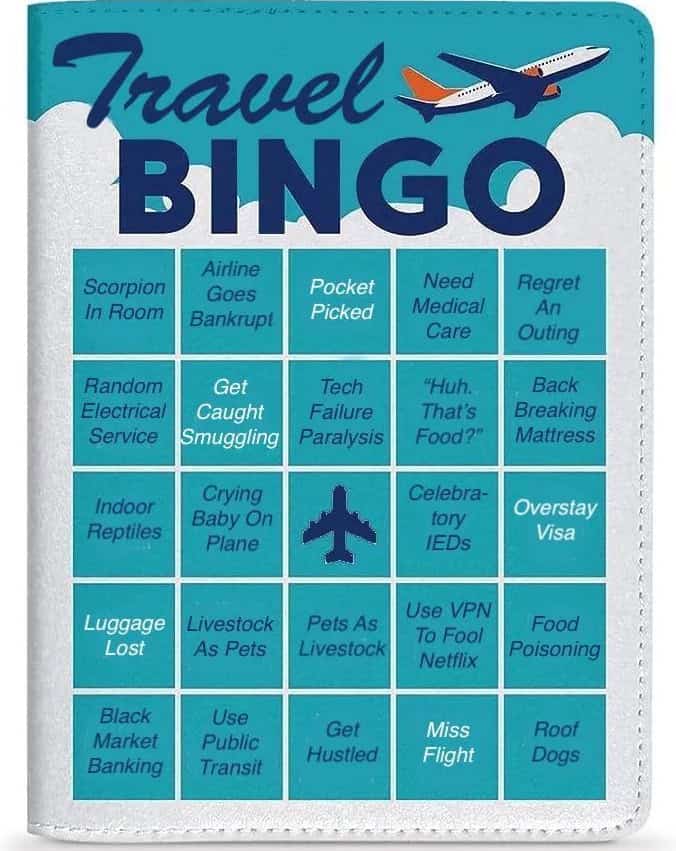
I’ve always said that the toughest part of travelling is organizing the “stuff” back home (of course, we started our travels back in 2014 and there were less resources available back then for would-be nomadic travellers). What tips would you give others? What should they plan/prepare for before leaving to travel?
The biggest decision we faced was whether to keep a US home or not. Partially for financial reasons and partially because we don’t think anything exists in the space between Stop and More, we chose to completely divest. We sold or gave away nearly everything we owned. After 50 years together, what was left fit into a 10’x15’ storage unit. It felt truly liberating to slough off a lifetime’s worth of weight.
Even if you’re keeping a home before nomading off, I think it’s super important to figure out how much you can lose and how simple you can make your life. The more complex the infrastructure you leave behind, the more likely it is to eat at your peace of mind and actively require your attention.
We owned a mixed-use building in St. Louis, and our original plan was to keep that and rent out the units through a local property management company. But the more we thought about the challenges of being absentee landlords with hired management, the worse the arrangement sounded. We’d still be on the hook financially if we needed, for example, a new roof, and there’s simply no way of knowing that your property managers are looking out for your interests.
We planned on being mobile indefinitely, so we needed to make sure that we had access to everything we might need while traveling. I think that’s true no matter how many months of the year you plan on being away. I spent the year before we left scanning our medical records and moving them into cloud storage, so we’d have ready access to that information wherever we were (which we have used repeatedly and was incredibly helpful), which also meant we could destroy the paper. I went through every file cabinet we owned and either shred the contents or, if they had value, scanned them before shredding. I kept a single file box of tax records.
I consolidated all of our various retirement and deposit accounts with the same firm, Schwab, so that managing money was simple. I set our phones up so our phone number would ring anywhere in the world, so we didn’t have to tell people how to reach us. I contacted everyone who sent us mail and migrated to email updates.
So that’s my advice: simplify, simplify, simplify. There’s a section on the blog about the planning and logistics necessary to launch that your readers might find helpful. I created it specifically because I had so much trouble tracking this information down when we were preparing to flee.
What’s the long term plan? Will you continue this lifestyle as long as you can? Then what? Do you plan on eventually settling overseas?
When we started this adventure we semi-jokingly referred to it as the Neuroplasticity Tour. We were intentionally shedding all of our comfort behaviors and forcing ourselves to constantly adapt to new circumstances. As we’ve learned more about what works and what doesn’t in this lifestyle, it only makes sense to change our plans and expectations.
The biggest change is that we’re adding a home. We’ve been unhomed for a year and a half now, and that’s created pressure points we weren’t anticipating. So we’re pivoting. We’ve bought an inexpensive condo in Chicago, so we can afford to maintain it while we travel, and we’re headed to the US after Turkey to move into it.
The point is that when we’re contemplating where our next stop should be, Home will now be an option. We’ll have a space that’s ours, that reflects our values and our needs, and represents a calm space in between our travels. We think we’ll be able to do this a lot longer if we can take the pressure off and breathe when needed.
This will also allow us to break our little bubble. Right now we are 100% of our entertainment for one another, and that’s starting to feel a little insular, a little brittle. While we’ve never lived in Chicago, we have family and friends there, and will absolutely have unshared pursuits. That should allow us to recharge and hit the road without forever being the horizon.
When we started this adventure, the commitment we made to one another was that we’d quit when it stopped being fun. We didn’t understand that what we were really agreeing to was to go until one of us cracked. Having a real home for an annual time out should release enough pressure to be able to do this until it’s physically, rather than psychologically, untenable.
As a result, our cadence will change. Maybe 3-4 months/year in Chicago and the rest traveling. I think we can sustain that schedule for quite a while. When even that’s too much we’ll have to be pretty frail before leaving Chicago in the winter seems like a bad idea. So we plan on at least some regular travel until we’re literally homebound.
When we’re truly done we expect to stay in Chicago. When we started out we thought that each place we visited would be a potential stopping point when we were tired of travel, but by the time we’re ready to stop we’ll be pretty far along. At that point the comforts of home and family seem like the right exit strategy.
Exit Strategy, by the way, was our second choice for the blog title. I’m glad we went with Escape Velocity. It has a more positive spin.
Many thanks to Mark for this wonderful interview!
You can follow Mark and Dorothy’s travels on their blog: Escape Velocity





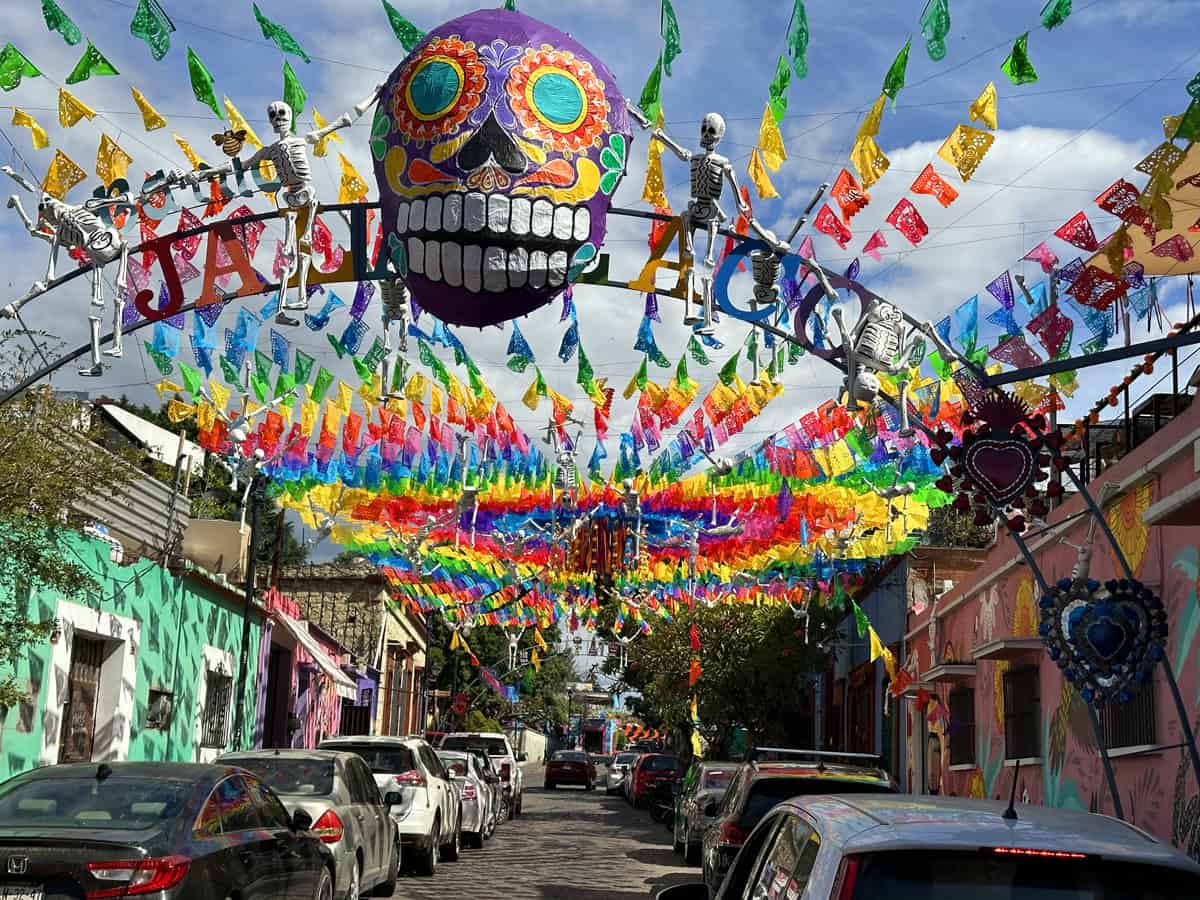
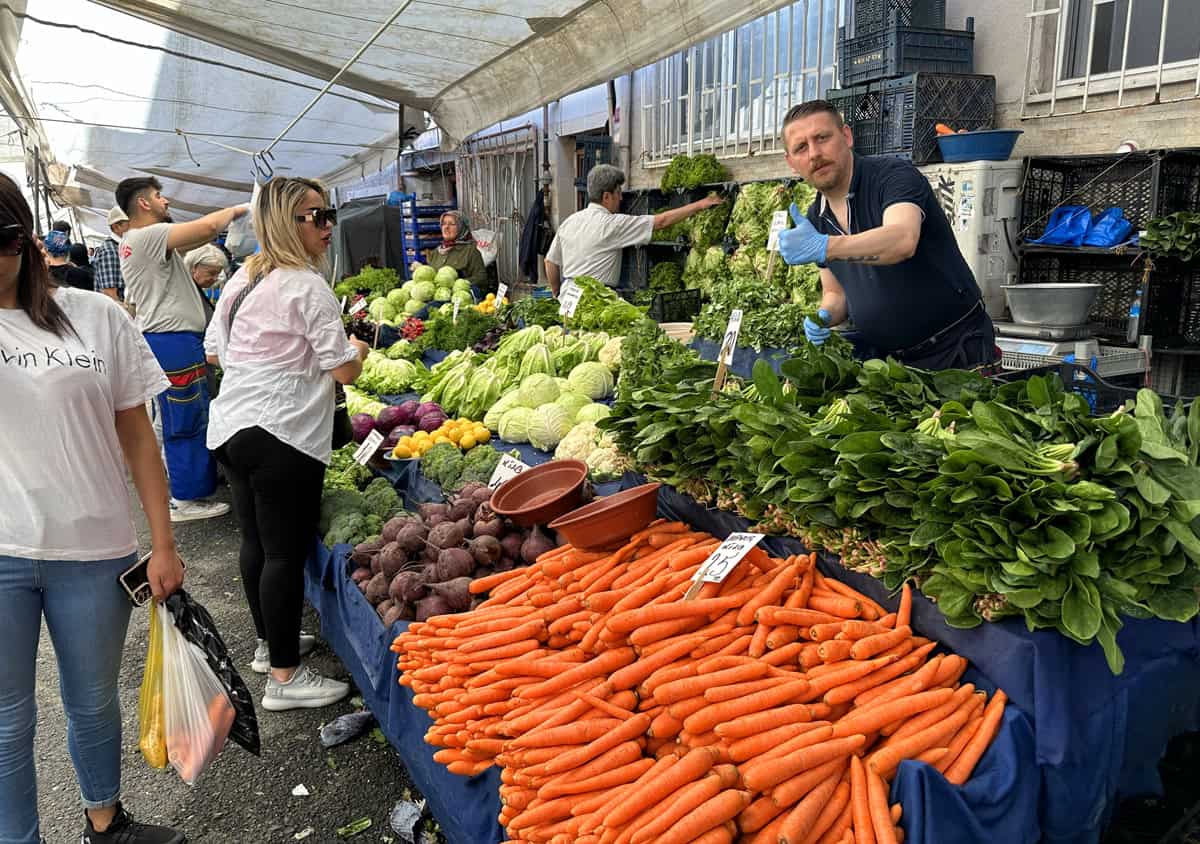
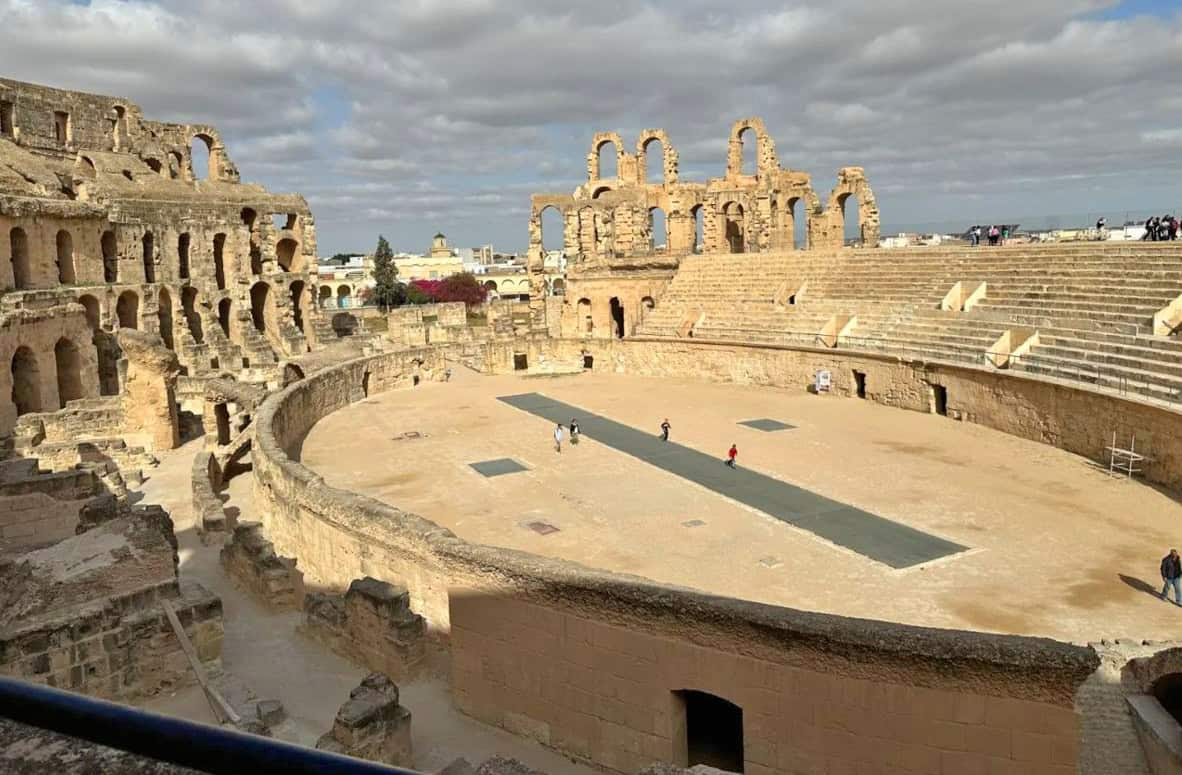
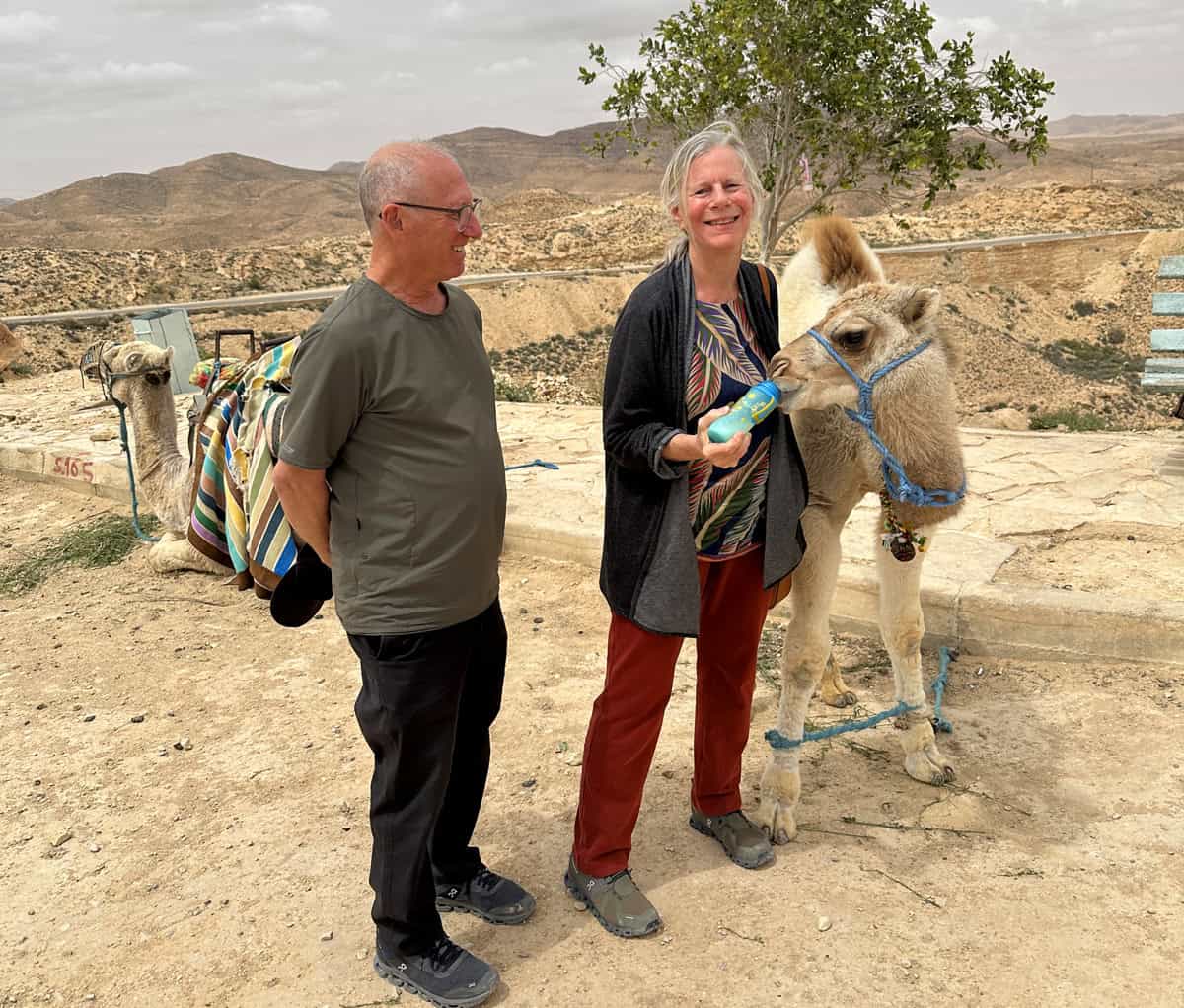


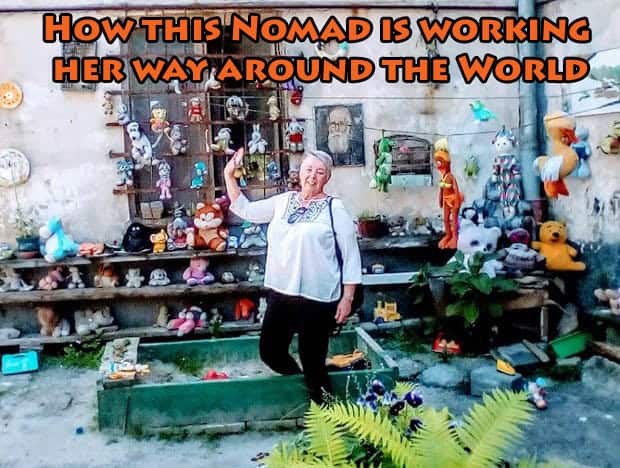
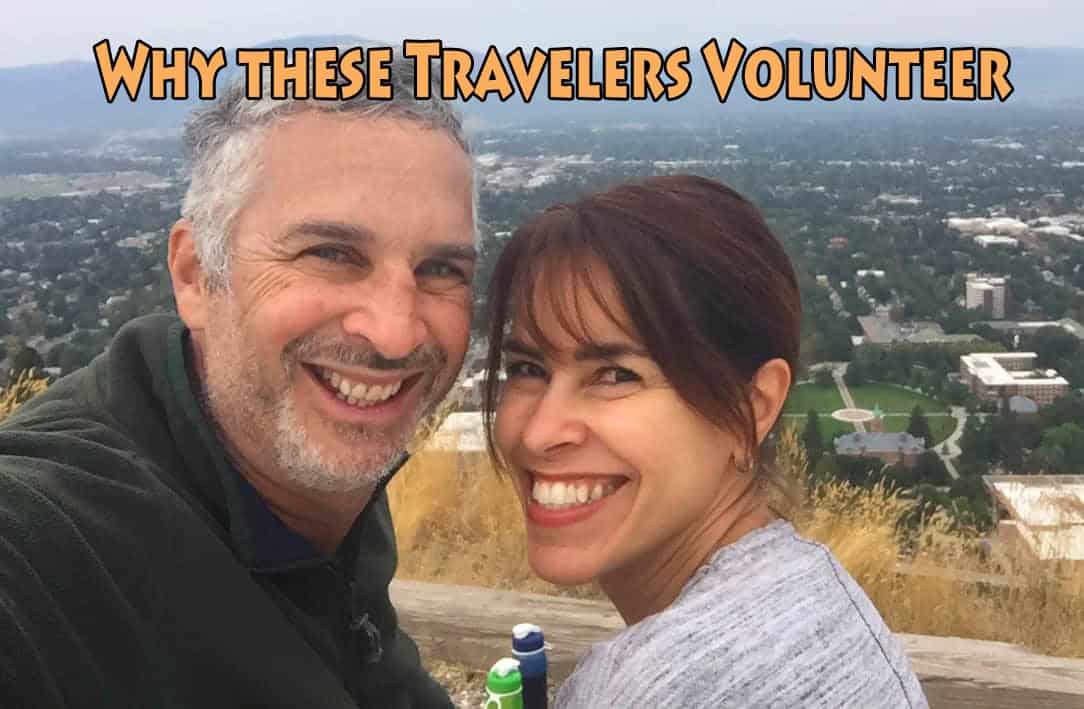
Leave a Reply